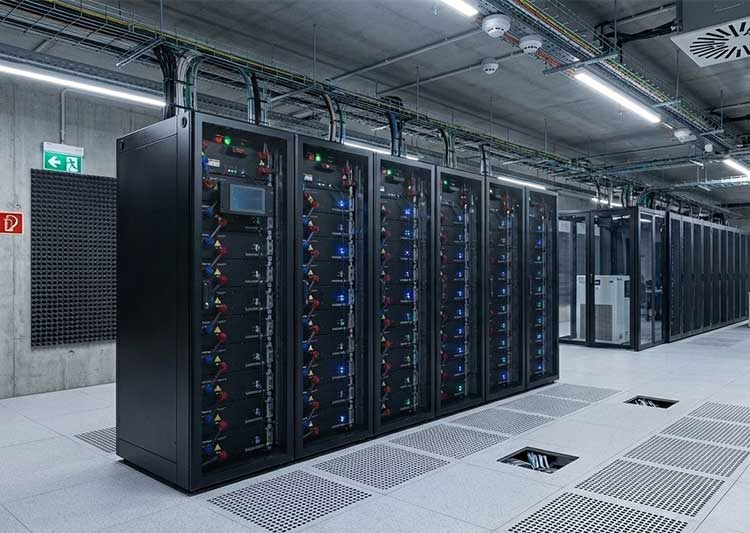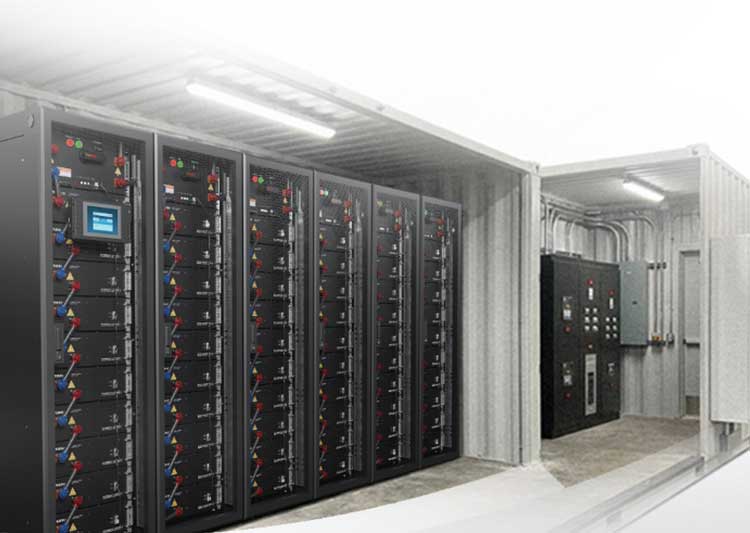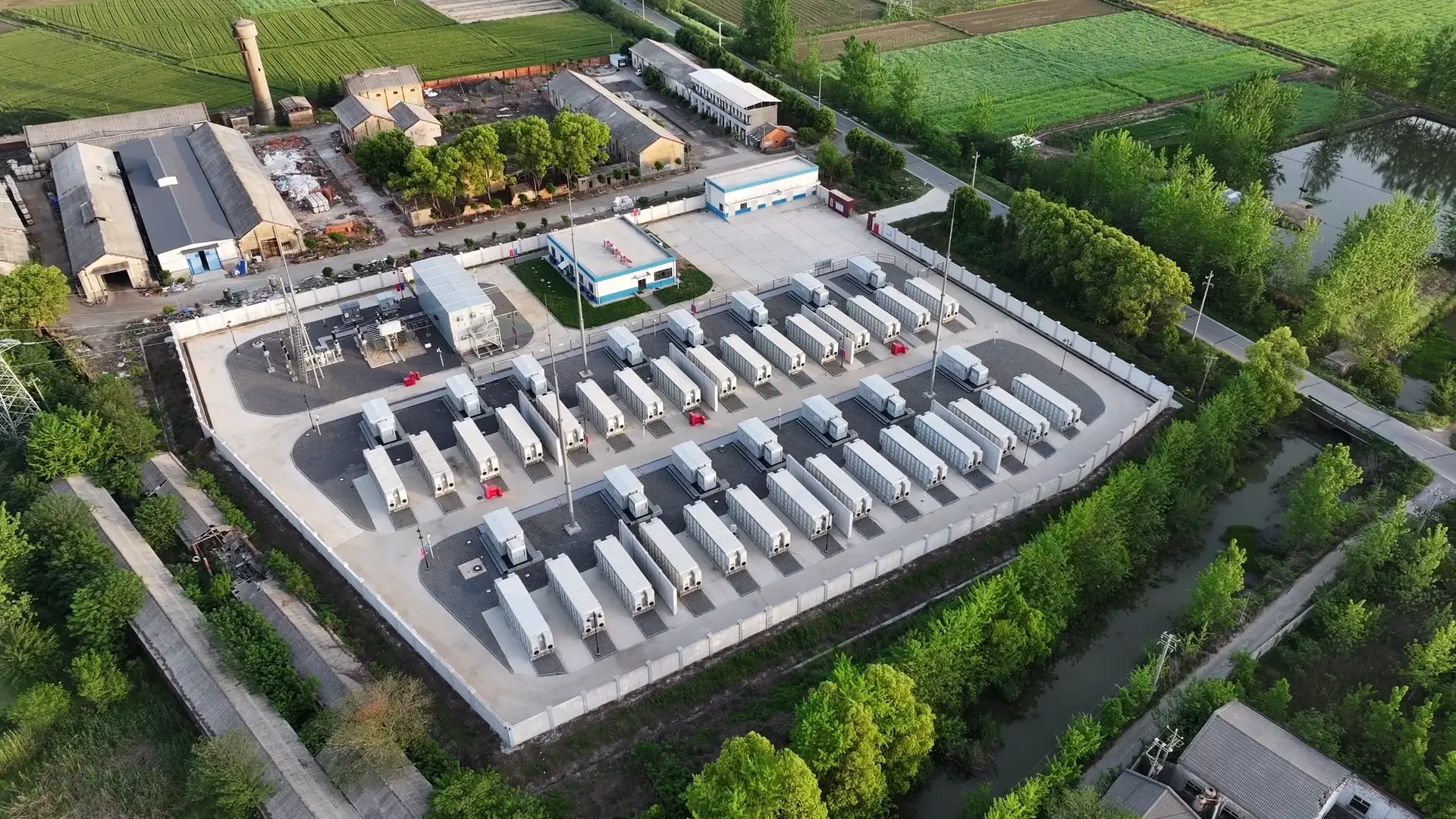In today’s digital world, data centers power everything from cloud computing to AI model training. As computing loads grow, so do the demands on backup power systems. Traditional UPS configurations can be rigid and hard to expand, often leading to unnecessary downtime or overspending on capacity.
That’s why modular UPS battery systems are becoming the preferred solution for modern data centers. Designed for flexibility, scalability, and efficiency, modular systems make it easier to grow, maintain, and manage reliable backup power.
What Is a Modular UPS System?
A modular UPS (Uninterruptible Power Supply) is a flexible power protection system made up of several independent modules that work together as a single unit. Each module contains its own power conversion and control components, allowing it to operate individually or as part of the overall system.
One of the biggest advantages of a modular UPS is easy scalability. You can add, remove, or replace modules at any time without shutting down the entire system. This makes it much simpler to expand capacity as your data center grows, or to perform maintenance without interrupting operations.
Compared with traditional UPS systems that have a fixed design, a modular UPS offers greater flexibility, redundancy, and reliability. It eliminates single points of failure and ensures that even if one module experiences a fault, others continue supplying power.
For data center operators—especially those running AI workloads or multi-tenant facilities—this modular design means smoother operation, higher uptime, and easier adaptation to future power demands.
Why Modular UPS Batteries Make Sense
1. Scalable Capacity Growth
As data center workloads increase, adding new servers or racks often means more power demand. With a modular UPS system, expanding capacity is simple — just insert additional power modules when needed. There’s no need to replace the whole system or shut down operations. This flexible “grow-as-you-go” design helps control both cost and downtime.
2. Higher Reliability and Redundancy
A modular UPS uses a distributed architecture, meaning each module works independently but supports the entire system. If one module fails, the others automatically share the load to keep power running without interruption. Redundant configurations (like N+1 or N+2) further ensure continuous uptime, even during maintenance or unexpected component failures.
3. Simplified Maintenance
Modular UPS batteries make maintenance faster and safer. Technicians can easily replace, repair, or upgrade a module while the rest of the system remains online — a feature known as hot-swapping. This design reduces downtime and simplifies long-term operation and service management.
4. Space and Energy Efficiency
Compared with traditional, single-block UPS units, modular systems take up less floor space and run more efficiently. Shared components, smarter load balancing, and better energy utilization help minimize power losses and reduce the total cost of ownership (TCO).
Lithium Modules: The Next Step in UPS Innovation
While modular design brings flexibility to UPS systems, lithium battery modules take performance and reliability to an even higher level. Compared with traditional lead-acid batteries, lithium technology offers several key advantages that make it ideal for modern data centers.
1. Higher energy density
Lithium batteries store more energy in a smaller space, allowing for compact UPS cabinets and higher backup capacity within the same footprint.
2. Longer lifespan
With a cycle life typically three to five times that of lead-acid batteries, lithium modules reduce replacement frequency and overall maintenance costs.
3. Smart BMS integration
Each lithium module is equipped with a Battery Management System (BMS) that continuously monitors temperature, voltage, and health status. This ensures safe operation and enables predictive maintenance before issues occur.
4. Faster charging
Lithium modules recharge more quickly after power outages, shortening recovery time and improving system availability.
By combining modular architecture with lithium battery technology, data centers gain a scalable, intelligent, and energy-efficient backup system. This combination provides the stability and responsiveness needed to support the growing demands of AI and edge computing environments.
Conclusion
Data centers are evolving faster than ever — and so must their power infrastructure. Modular UPS batteries provide a flexible, efficient, and reliable way to support this growth. By combining modular architecture with intelligent lithium modules, operators can scale capacity seamlessly, reduce operational risk, and achieve better energy efficiency.
As workloads become more dynamic and sustainability targets tighten, modular UPS systems stand out as the smarter, future-proof choice for data center power management.




























 2025-10-28
2025-10-28 Name
Name Tel
Tel Email
Email Country
Country Company
Company Information
Information